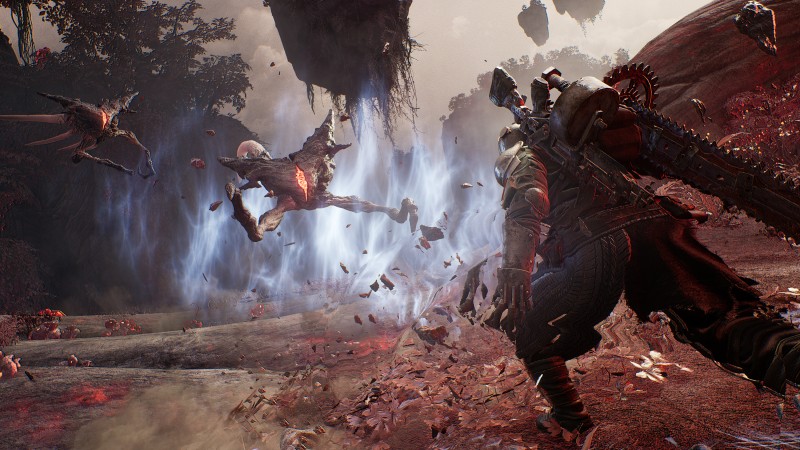The original Remnant: From the Ashes was a surprise success thanks to its Souls-inspired action combined with third-person shooting and randomized environments. The sequel is a refinement with new environments and expanded lore. I enjoyed my time with the game and its final boss and the shooting mechanics feel great, but Remnant II ultimately doesn’t do enough to separate itself from the genres and games that inspired it.
Comparing other video games to From Software’s iconic Souls series is an overused cliché, but it’s be hard to talk about Remnant II without doing so. Timed dodge-rolling is your primary means of avoiding damage, fog gates separate you from bosses, and checkpoints refill your health items and reset the enemies in the environment. The good news is that all these mechanics feel great and work well. Firing off a few critical shots at the head of a boss and dodging out of the way just as a gigantic sword comes slamming to the ground is consistently exciting. And nothing beats the relief of coming across a checkpoint after an intense sprint through what felt like an endless barrage of enemies. The influences are apparent and it mostly translates well to a third-person shooter.
Some elements don’t translate as well, however, or just aren’t particularly satisfying. Being a shooter, you must face the enemy you’re fighting, which means running away from a rampaging beast requires removing it from your view, which can feel unfair. The progression loop also did little to pull me in. The primary source of growth is making your weapons more powerful, but those upgrades are incremental and somewhat infrequent. You can apply traits to many elements of your character, but the statistical upgrades are minor. The items you find in the environment also have far too many variables that typically only affect very specific scenarios making the choice to not equip them easy. I played most of the game with the same weapon and armor, as switching to something else never felt like a valuable pursuit.
While the upgrade progression didn’t excite me, I was always eager to continue, thanks to seeing what environment I would encounter next. The lore conceit allows players to explore different dimensions, not just levels, which means one location can look like the back alleys of Victorian London, while the next can be a futuristic city loaded with robots. And every area nails the difficult-to-quantify unsettling tone without being horrific.
The world-building of each dimension invites exploration, but the moment-to-moment plot and characters did little to engage me. Its bosses, however, are exciting, scary, and challenging, but thankfully not to the point of feeling insurmountable. There are plenty of big scary monsters with swords and fire breath who will kill you repeatedly, but there are also giant cubes stomping through mazes and A.I. machines excited to test your mortality on moving trains. Every dimension feels radically different, and their guardians all present thrilling encounters.
Remnant II is most successful as a tour through a series of disparate dimensions, each contending with their own battles against the villainous Root plaguing their world. The gunplay is solid, the co-op with up to two other players works great, and the lore is fascinating (if you want to dig deep). Remnant II’s plot, characters, and progression are where it falls short, but I like its third-person shooter take on mechanics and ideas borrowed from the Souls games.
